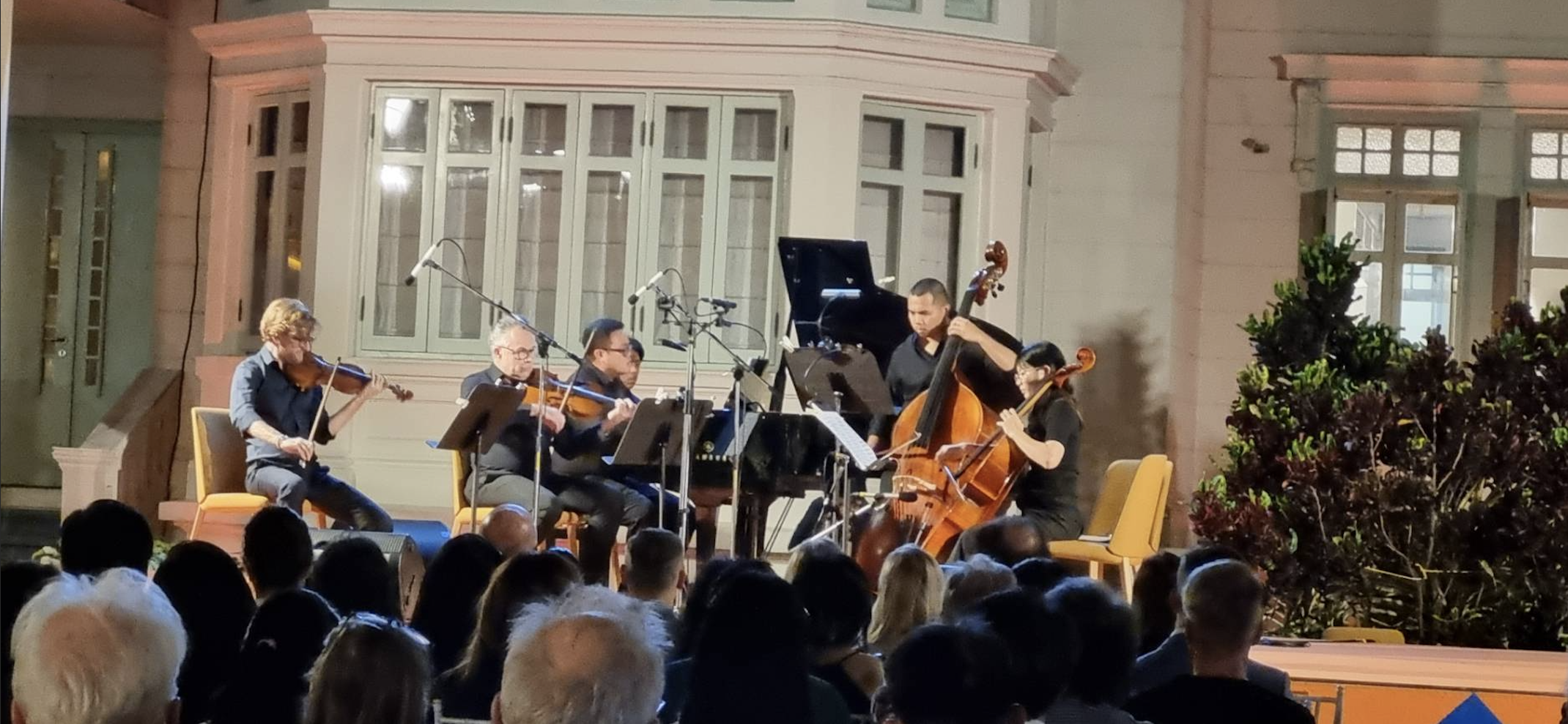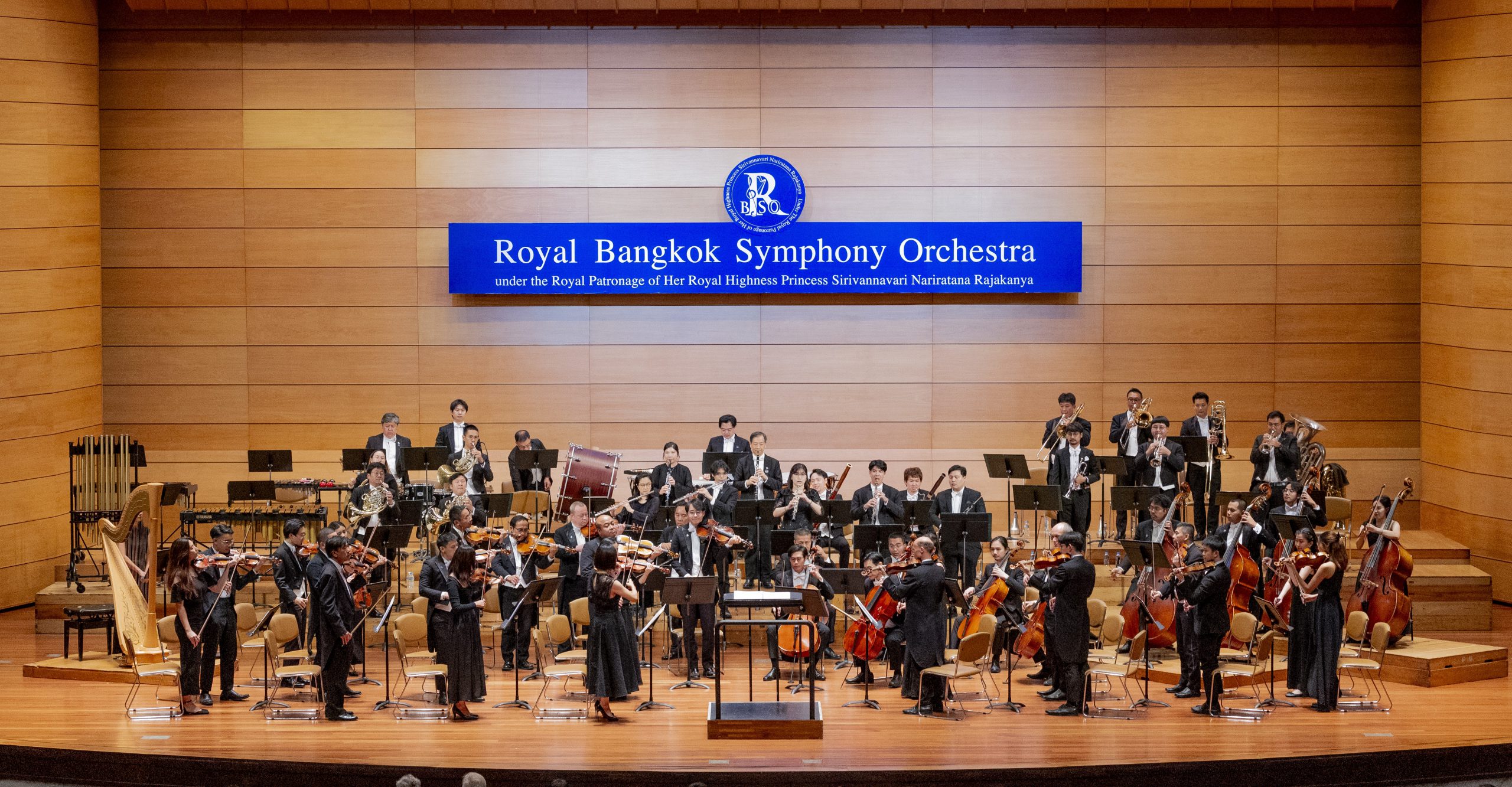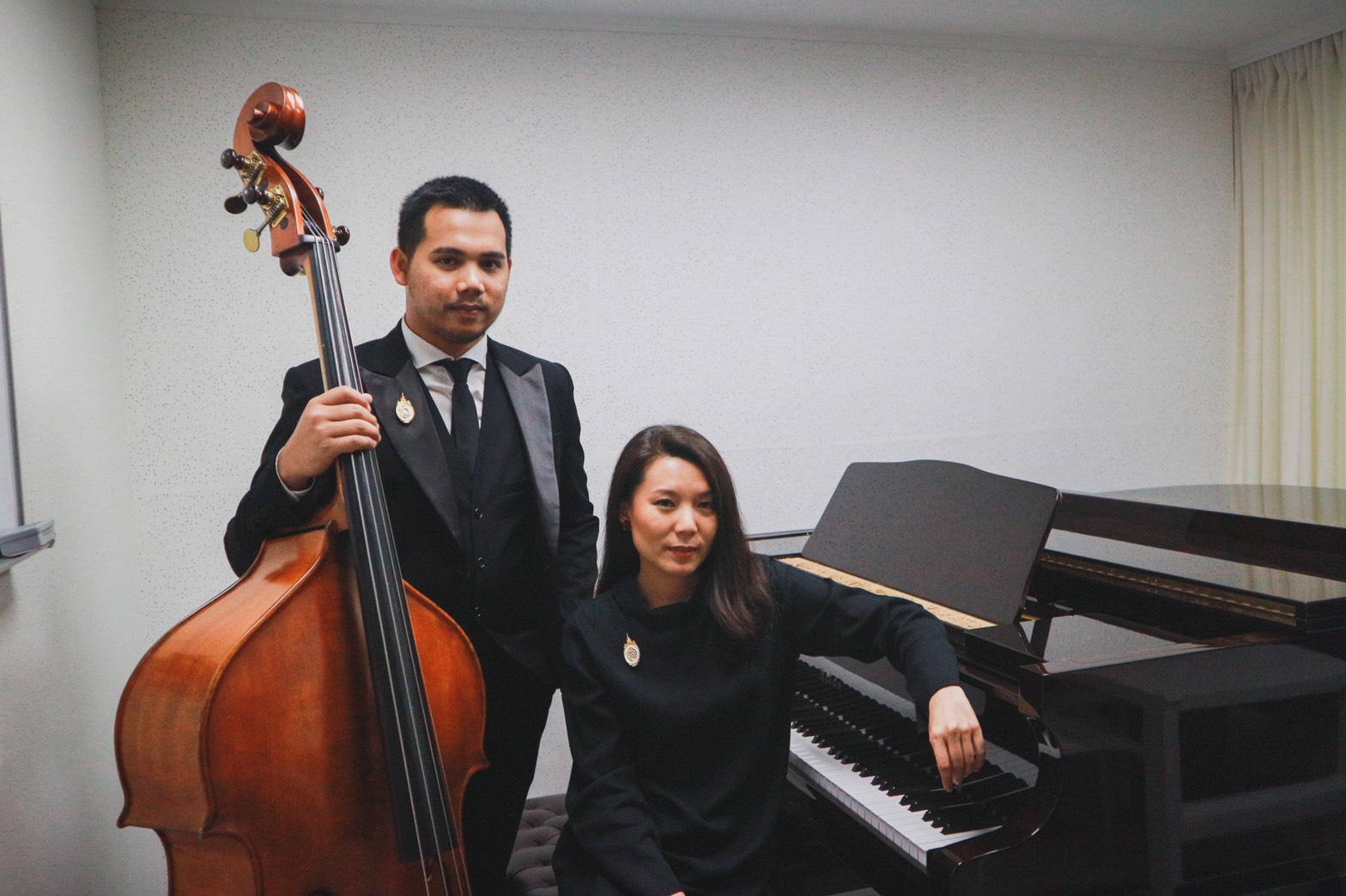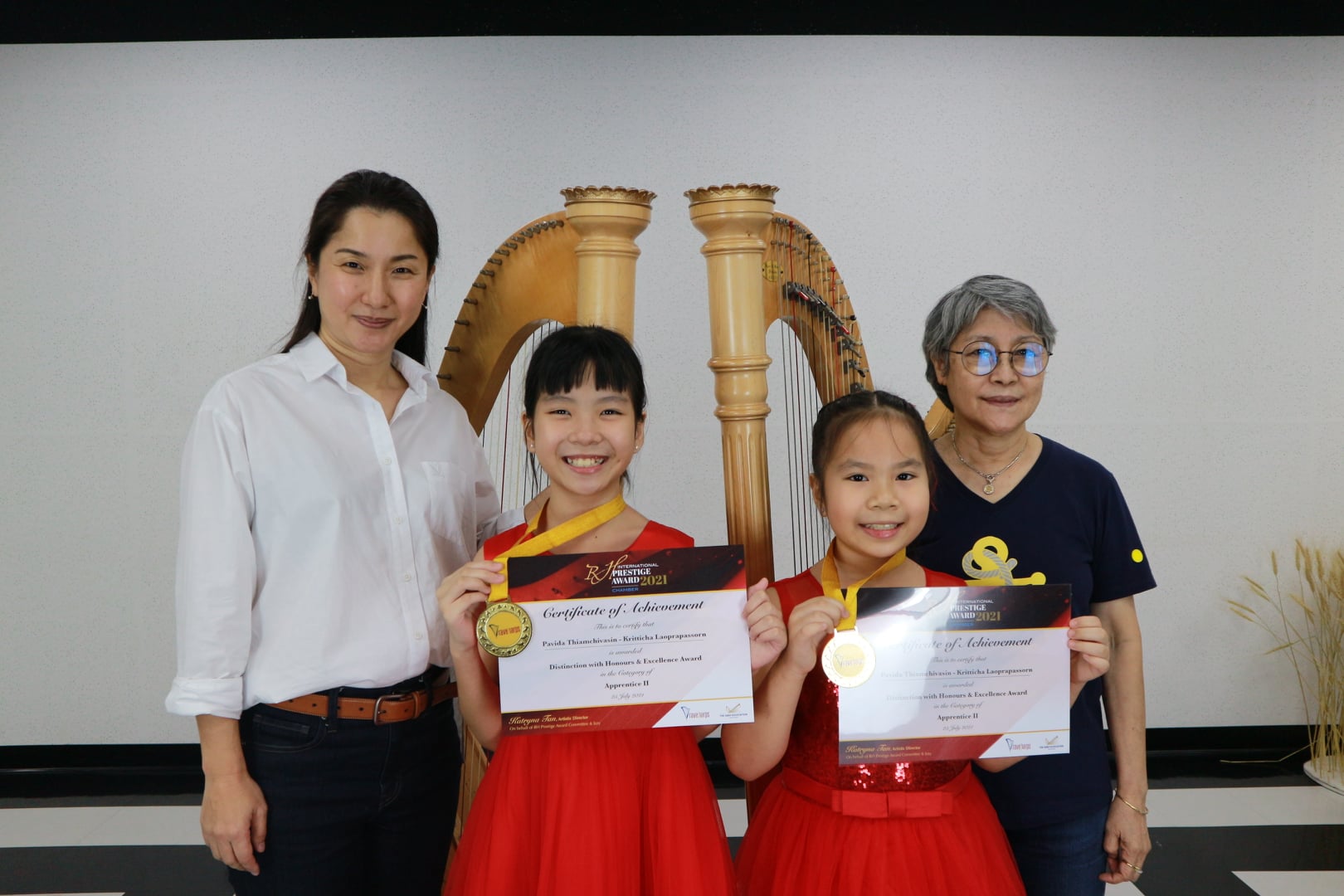The prestigious Netherlands embassy became the picturesque setting for the Music Bridge concert on the evening of December 8th. The garden was transformed into a haven, featuring a seating arrangement on fresh grass surrounding a slightly elevated stage and trees adorned with golden lights. The theme of unity resonated as the renowned RBSO and the Royal Concertgebouw Orchestra took the stage to perform two exquisite pieces by Austrian composer Franz Schubert. His extensive oeuvre encompasses over 600 secular vocal works, symphonies, sacred music, operas, chamber pieces, and piano compositions. While appreciation of his work during his lifetime was limited, Schubert is posthumously appreciated as one of the greatest composers in Western classical music.
The event began with speeches, including one by the Netherlands ambassador, H.E. Mr. Remco van Wijngaarden. The historical context of diplomatic relations between Thailand and the Netherlands spans over 419 years. From its origins as a trade relationship in the 17th century, this partnership has evolved into a cultural and communal connection. This event demonstrated the depth of cultural diplomacy, reinforcing the universality of music in strengthening bonds. Dr Herald Link, RBSO chairman, shared insights into the historic house, which served as the backdrop to the performance. It was initially constructed in the early 20th century, highlighting its iconic status and structural significance. He emphasised that the Royal Concertgebouw Orchestra is a genuinely world-class ensemble. The RBSO has similarly established itself internationally in cities like Vienna, Munich and Paris.
The magnificent Royal Concertgebouw Orchestra featured violinist Marc Daniel van Biemen, violist Jeroen Woudstra, clarinettist Hein Wledijk and Jos de Lange on the Bassoon. They brought their experience and expertise to Bangkok for this special occasion. These esteemed musicians played alongside pianist Jayanat Wisaijorn, violinist Pisoot Saay-Op-Oua, hornist Krit Duangmorakot and Maysa Soodjaiklin on cello. The ability of Thai musicians to work cohesively with the Royal Concertgebouw Orchestra demonstrates their qualities as high-calibre role models and teachers for the Bangkok Symphony Music School (RBSS).
When renditions of Schubert's compositions began, the audience was immersed in the melodies, experiencing various emotions with each phase. The Trout Quintet, officially known as the Piano Quintet in A major, D. 667, was composed in 1819. Despite its structural idiosyncrasies, such as extended repetitions, it stands out for its richness and influence on later composers. This performance, with its lively harmonies and vibrant variations, composed of five movements, resonated with a spirit of celebration. Each part of the song was sophisticated and dynamic. There were moments akin to a haunting melody and more vibrant aspects; these tonal shifts elevated the performance.
The second piece, the Octet in F major, D. 803, composed in 1824, was commissioned as a composition akin to Beethoven's Septet, Op. 20; Schubert crafted the Octet with six movements, and stands as Schubert's most expansive chamber work. The piece started slower; however, it had an enchanting build-up with layers of sounds between the crescendos. Despite the various instruments, you could still pick out individual performances. The skill and collaboration were apparent as each player was expressive whilst contributing to the whole song.
The consensus was clear – it was more than a concert; it was like a magical evening in a jungle, an experience that left a mark on those fortunate enough to be present. After the breathtaking performances, guests were given time to enjoy the food selection and discuss the musical journey they had just experienced. The Music Bridge concert at the Netherlands embassy became a harmonious bridge between people. The melodies echo throughout the evening, celebrating the universal language of music and the two nations' shared history.
The event began with speeches, including one by the Netherlands ambassador, H.E. Mr. Remco van Wijngaarden. The historical context of diplomatic relations between Thailand and the Netherlands spans over 419 years. From its origins as a trade relationship in the 17th century, this partnership has evolved into a cultural and communal connection. This event demonstrated the depth of cultural diplomacy, reinforcing the universality of music in strengthening bonds. Dr Herald Link, RBSO chairman, shared insights into the historic house, which served as the backdrop to the performance. It was initially constructed in the early 20th century, highlighting its iconic status and structural significance. He emphasised that the Royal Concertgebouw Orchestra is a genuinely world-class ensemble. The RBSO has similarly established itself internationally in cities like Vienna, Munich and Paris.
The magnificent Royal Concertgebouw Orchestra featured violinist Marc Daniel van Biemen, violist Jeroen Woudstra, clarinettist Hein Wledijk and Jos de Lange on the Bassoon. They brought their experience and expertise to Bangkok for this special occasion. These esteemed musicians played alongside pianist Jayanat Wisaijorn, violinist Pisoot Saay-Op-Oua, hornist Krit Duangmorakot and Maysa Soodjaiklin on cello. The ability of Thai musicians to work cohesively with the Royal Concertgebouw Orchestra demonstrates their qualities as high-calibre role models and teachers for the Bangkok Symphony Music School (RBSS).
When renditions of Schubert's compositions began, the audience was immersed in the melodies, experiencing various emotions with each phase. The Trout Quintet, officially known as the Piano Quintet in A major, D. 667, was composed in 1819. Despite its structural idiosyncrasies, such as extended repetitions, it stands out for its richness and influence on later composers. This performance, with its lively harmonies and vibrant variations, composed of five movements, resonated with a spirit of celebration. Each part of the song was sophisticated and dynamic. There were moments akin to a haunting melody and more vibrant aspects; these tonal shifts elevated the performance.
The second piece, the Octet in F major, D. 803, composed in 1824, was commissioned as a composition akin to Beethoven's Septet, Op. 20; Schubert crafted the Octet with six movements, and stands as Schubert's most expansive chamber work. The piece started slower; however, it had an enchanting build-up with layers of sounds between the crescendos. Despite the various instruments, you could still pick out individual performances. The skill and collaboration were apparent as each player was expressive whilst contributing to the whole song.
The consensus was clear – it was more than a concert; it was like a magical evening in a jungle, an experience that left a mark on those fortunate enough to be present. After the breathtaking performances, guests were given time to enjoy the food selection and discuss the musical journey they had just experienced. The Music Bridge concert at the Netherlands embassy became a harmonious bridge between people. The melodies echo throughout the evening, celebrating the universal language of music and the two nations' shared history.

Back to Top
Back to Top



